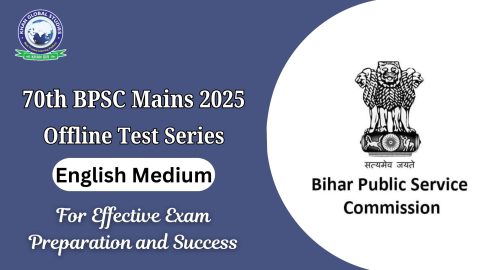Comprehensive Guide to State Exams (One-Day Exams)
State exams, commonly called one-day exams, are competitive examinations conducted at the state level for recruitment to various government positions. These exams provide candidates with an opportunity to work in state administrative, police, judicial and other important departments. In this article, we will discuss various aspects of state exams, their structure, importance and preparation strategies.
What are state exams?
State exams are conducted by the respective State Public Service Commissions (State PSCs) or other specialised state bodies, such as the Subordinate Services Selection Board, to recruit individuals for state-level government positions. These exams test the candidate’s knowledge, aptitude and reasoning skills, and are designed to select the most qualified individuals for roles in public service.
Unlike national-level exams such as the UPSC Civil Services Exam, state exams focus primarily on state-specific subjects, including local language, history, geography and socio-economic issues, as well as general aptitude and knowledge required for the civil services.
Exam Structure of State Exams
State exams follow the same format as national-level exams, although the specifics vary depending on the post and state. The general structure includes:
1. Preliminary Exam
The preliminary exam (Prelims) is usually the first stage, consisting of objective-type questions. This exam is designed to shortlist a large number of candidates and generally consists of two papers:
- General Studies (GS): Questions from current events, Indian and state-specific history, geography, economy, and politics.
- Aptitude Test: Tests reasoning, comprehension, and mathematical skills.
The preliminary exam is usually qualifying in nature, which means that the marks obtained in this stage cannot be counted for final merit, but candidates must pass it to proceed to the main exam.
2. Main Exam
The main exam (Mains) is the second stage and consists of several descriptive papers. These include:
- General Studies Paper: Focuses on broad subjects such as history, geography, economics, politics, and social issues. These can be divided into several papers based on the state.
- Optional subject papers: Candidates choose subjects from a list of options provided by the commission.
- Language paper: A paper testing the candidate’s proficiency in the local language of the state as well as English.
The main exam marks are generally counted in the final ranking.
3. Personal Interview
After the main exam, shortlisted candidates are called for a personal interview, also known as a personality test. This stage assesses the candidate’s confidence, communication skills and overall suitability for public service. Candidates are evaluated based on their ability to effectively answer questions on current affairs, state-specific issues, and personal qualities such as leadership and decision-making.
State-Specific Focus in Exams
State exams often emphasize subjects related to the specific state, such as:
- State history and culture: A strong focus on the history, art, and culture of the particular state.
- State geography: Knowledge of the physical geography of the state, including rivers, mountains, and natural resources.
- State Economy: Local economic issues, major industries, agricultural practices and resources.
- Local Laws and Policies: Questions related to state laws, government schemes and policies specific to that region.
Candidates should stay updated on local current affairs and government initiatives affecting the state, as these topics often feature prominently in both the prelims and main exams.
Importance of State Exams
State exams provides candidates with an opportunity to serve the public and contribute to the development and administration of their home state. Some of the major reasons why these exams are in high demand are as follows:
- Job Security: Government jobs offer a high level of job security, attractive salary packages and additional benefits such as pension.
- Prestige: Securing a state-level administrative position brings prestige and recognition within the community.
- Direct Role in Governance: State officials play a vital role in implementing government policies, managing resources and maintaining law and order at the local level.
- Diverse Opportunities: Candidates get opportunities to work in various sectors such as education, health, infrastructure and rural development.
How to prepare for state exams?
Success in state exams requires a holistic approach to preparation. Here are some essential tips:
- Understand the syllabus: Each state commission releases a detailed syllabus for its exams. It is important to understand the syllabus thoroughly and create a study plan covering every topic. Prioritize state-specific subjects like local history, geography, and law, which hold crucial importance in the exam.
- Practice previous years’ question papers: Solving previous years’ question papers helps you understand the exam pattern, difficulty level, and frequently asked questions. It also improves time management and allows candidates to identify areas where they need more attention.
- Focus on Current Affairs: Stay updated on current affairs, both national and state-specific. Read newspapers regularly, follow news portals, and refer to monthly current affairs magazines. This will help in answering questions related to government schemes, policies, and socio-economic development.
- Mock Tests and Revision: Taking regular mock tests is essential to evaluate your preparation level. These simulate the real exam environment, allowing you to practice time management and refine your exam strategy. Constant revision of important topics is also important for retaining information.
- Local Language Proficiency: State exams often include a local language paper. Candidates must ensure that they have a good command over the official language of the state, as a poor performance in this paper can disqualify them, even if they excel in other subjects.
Conclusion
State exams offer candidates an incredible opportunity to serve their community and work in prestigious government roles. From administrative services to policing, these exams pave the way for a satisfying career in the public sector. Success requires a solid understanding of the exam structure, focused preparation, and dedication. By mastering both general and state-specific topics, candidates can significantly improve their chances of achieving their goals.







